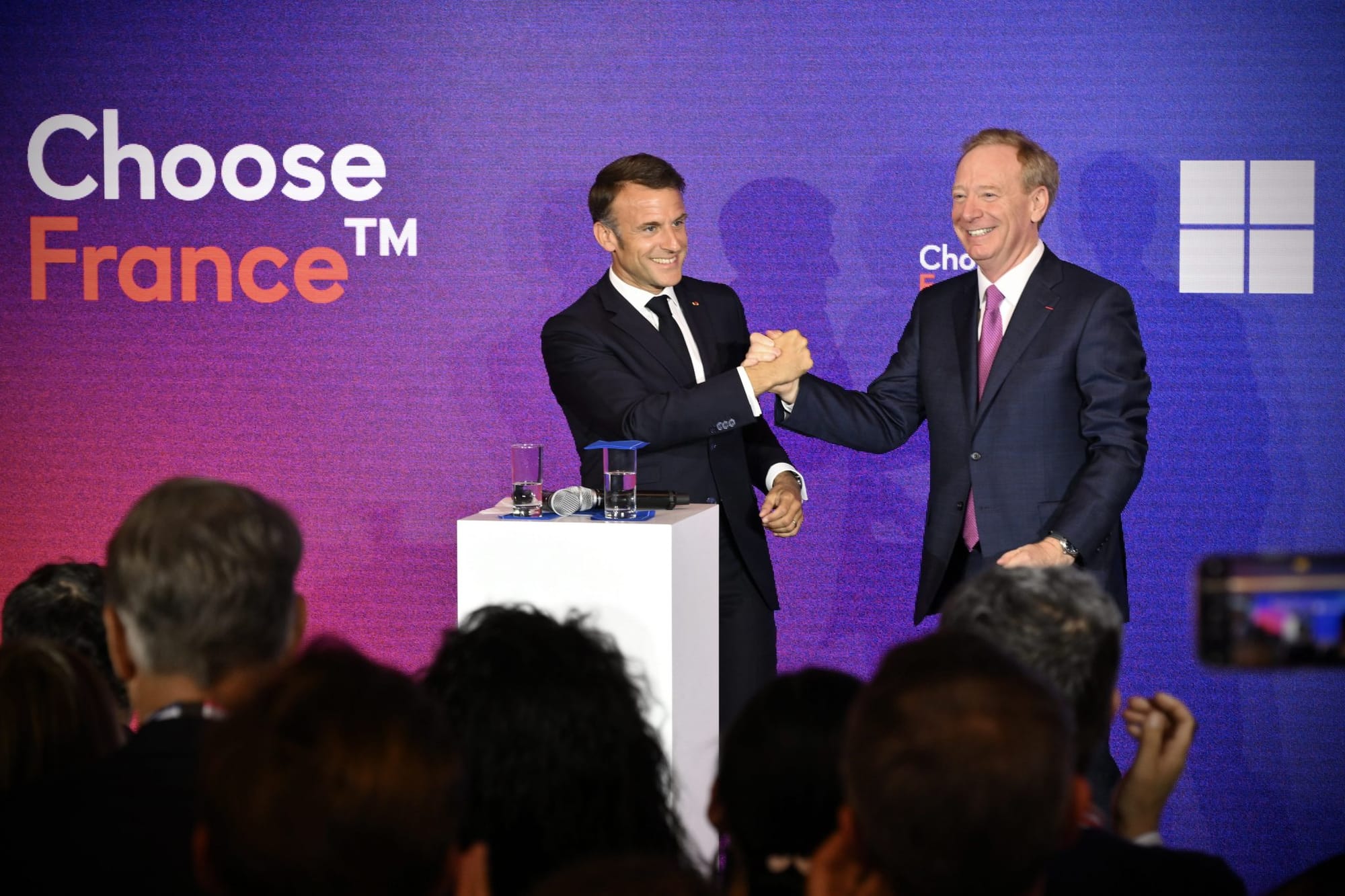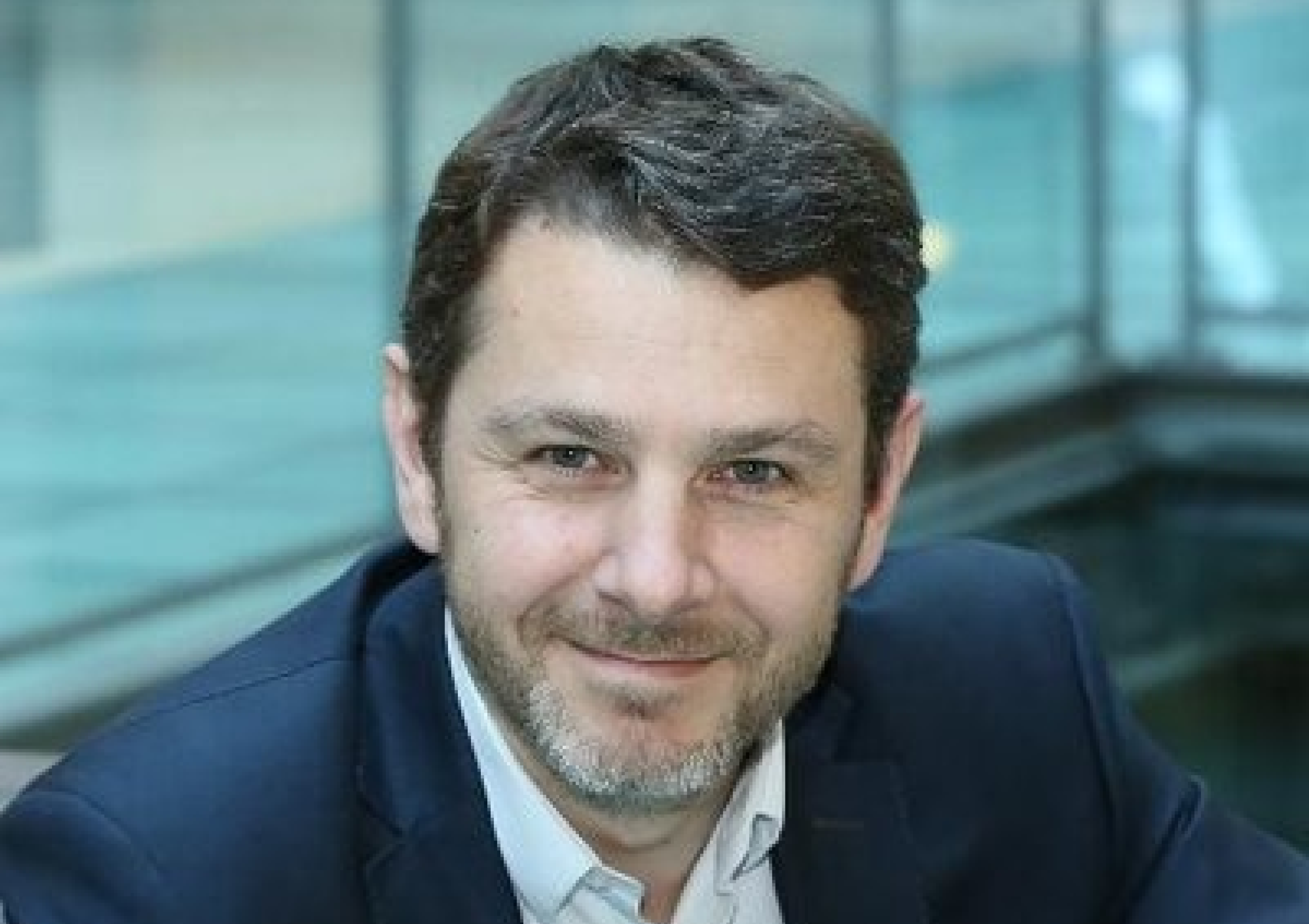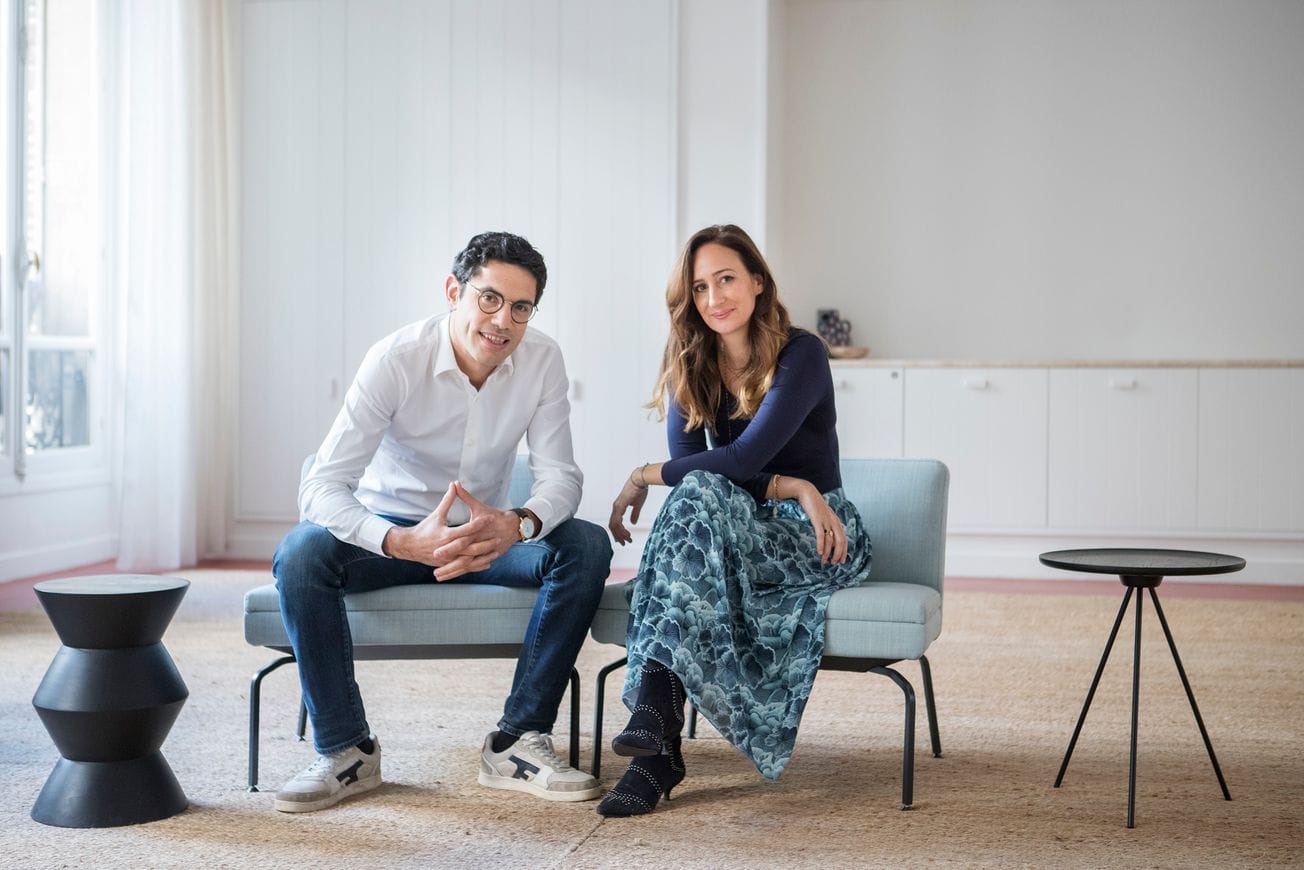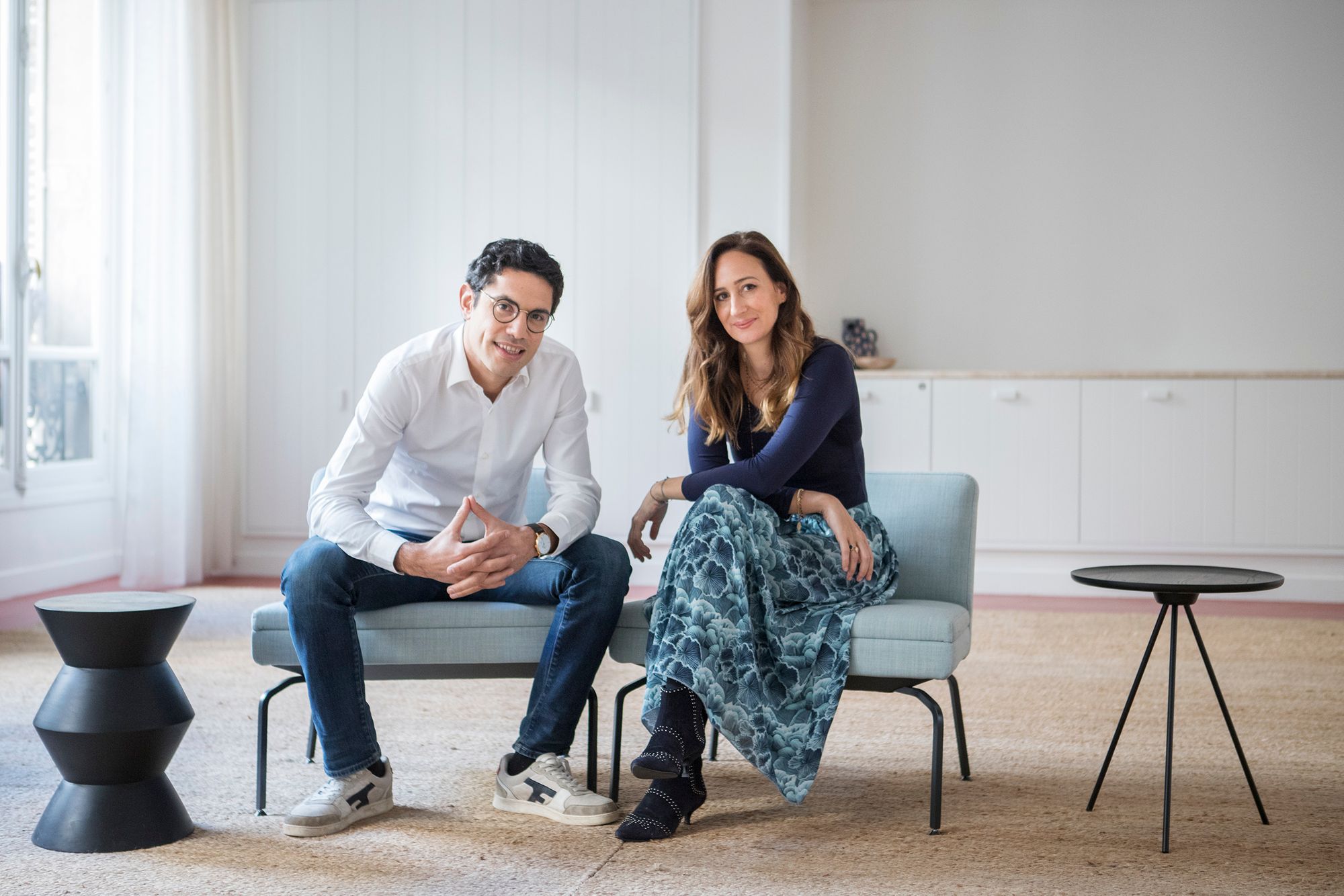Welcome...
👋 Here is your friendly reminder that this newsletter is free. 😉🥂 Upgrade to a paid membership to get full access to all the articles and archives. 🏆
🔎 Inside this week's newsletter:
- Spotlight Interview: This week marks the 8th edition of Viva Technology, one of the largest and most anticipated tech conferences in the world. Nicolas Douchement, Chief Experience and Strategy Officer of VivaTech, shares his thoughts on the current startup funding climate, the role of AI, and the emergence of Sports as a big theme.
- Deep Dive: Ok, maybe being a unicorn isn't as cool as it once was. But the list of 100 Future Unicorns selected by VivaTech and its partners still highlights some of the most promising startups across Europe. We break out the 21 French startups that made the list.
- The Big Deals: Resilience, H, and May Health.
Tech Talk

⬆️ 🤖 In the run-up to VivaTech, Artificial Intelligence has again become Subject Numero Uno as "Paris Vies For Europe's AI Crown," according to Reuters. During the annual Choose France summit earlier this month (Operation Seduce Large International Corporations), Microsoft announced it would invest €4 billion in France to "accelerate the adoption of artificial intelligence and cloud technologies." The money is for infrastructure, training, and a new GenAI Studio at Station F. 🥳
⬆️ 🤯 That was just a prelude to more pre-VivaTech AI hype. On Tuesday, semi-secret GenAI startup "H" (briefly known as "Holistic" before slimming down its name), officially confirmed its existence and announced the closing of a $220 million financing round that is labeled "Seed" and is also a mix of equity (40%) and convertible debt (60%). H was co-founded by a gaggle of former Google DeepMind scientists: Karl Tuyls, Laurent Sifre, Julien Perolat, and Daan Wierstra. The other co-founder is CEO Charles Kantor, who is the largest shareholder according to financial filings. Kantor was pursuing a Master's in AI at Stanford before leaving to start the company, as one does in Silicon Valley. Except in Paris. The company claims it has developed a more powerful and efficient way to build foundational models for GenAI. Investors in the company include Accel, UiPath ($35.2 million, according to Sifted), Bpifrance, Eric Schmidt, Xavier Niel, Amazon, FirstMark, Elaia Partners, Eurazeo, Yuri Milner, Aglaé Ventures (LVMH's Bernard Arnault), Creandum, Motier Ventures, Samsung, and Visionaries Club. 🤑
✌️ French President Emmanuel Macron barely had time to take a victory lap over the funding news when he hosted an elite gathering of AI founders and investors at the Prez Palace on Tuesday. As part of the event, Macron announced several new AI-related initiatives, including an additional investment of €400 million for several new AI training centers to boost France's talent pool, and plans for a new investment fund – 25% funded by the government – to support startups in AI, semiconductors, and the cloud. “Basically, the question posed to France, to Europe, is: are we deciding on the investments, the support policy that will allow us to fully return to international competition?" said Macron, according to Le Monde. "This is a moment of strategic awakening that we are experiencing, which requires profound choices in terms of research, training, and investment.” 🥊
💻 Finally, OpenAI threw a little bash in Paris on the eve of VivaTech, according to Sifted. The invite-only event drew developers as Open AI execs hinted that they plan to spend more time in Paris, stoking rumors that the ChatGPT creator might be considering opening an office here. 💬
⬆️ 🇫🇷 Balderton, the UK-based power VC is expanding its European footprint with a news Paris office that opened this month. Two new full-time Paris team members, Solène Brébant and Elena Moneta, will join French-Belgian investor Zoé Mohl.
⬆️ 💸 Lydia Solutions, the French fintech behind the popular peer-to-peer money transfer app, announced the launch of a new bank named Sumeria. Sumeria. Named after the Sumerian civilization, which minted the first coins as a form of currency, the new bank will offer interest-bearing current accounts, a unique feature in France. To reach its goal of 5 million banking customers by 2027, the fintech company plans to invest 100 million euros of its funds and profit margins.
⬇️ 👉 Techstars CEO Maëlle Gavet has announced that she is stepping down from her leadership role at the emblematic accelerator due to health reasons. The NYC-based Frenchie took the reigns of the global accelerator program in early 2021 with plans to increase its focus on impact entrepreneurship. Her departure follows a series of stories by TechCrunch about a troubled tenure. She is being replaced as CEO by Techstars' co-founder, David Cohen, who has held the position on and off for 13 years “I will continue to focus on making Techstars even better for founders,” he wrote.
The Deep Dive:
21 Future French Tech Unicorns

As Viva Technology, the Paris mega tech conference kicks off, the organizers have released their annual "Top 100 Next Unicorns" which was compiled in partnership with financial advisory firm GP Bullhound, plus contributions from Accel, Eurazeo, NorthZone, and Partech.
The criteria for selecting companies include growth, funding raised, employment growth, and impact. The 100 fastest-growing companies in Europe include 22 from the U.K., 21 from France, and 14 from Germany. Of those 100, 43 are Saas companies, 16 are Digital Media, and 16 are AI/Big Data.
Spotlight Interview:
VivaTech's Nicolas Douchement

VivaTech brings together a diverse mix of startups, corporates, tech personalities, and enthusiasts from around the globe. On the eve of the event, we spoke with one of VivaTech’s founders, Nicolas Douchement, who is currently Chief Experience and Strategy Officer. Douchement shared his perspectives on the conference's evolution, the annual meetup's ongoing transformation, and his hopes for this year's event.
"This year feels more optimistic, like the beginning of a new era," he said. "2023 was difficult with VCs facing challenges with dry powder running low and plummeting startup valuations. But most industry actors we speak to tell us that this has led to a necessary recalibration, forcing startups to focus more on solid business models rather than chasing valuations."
The Big Deals


What: Resilience has developed a remote monitoring platform for cancer patients.
Why: The growing rates of cancer combined with a shortage of healthcare workers have put a strain on the ability of hospitals to sufficiently track the progress of patients when they are not admitted.
Funding: $25 million
Who: Co-founders Jonathan Benhamou and Céline Lazorthes
Investors: Picus Capital and Red River West led the round, which also included money from Cathay Innovation, Singular, and Seaya Ventures.
What's Next: Resilience is currently available in France and Belgium and will use the money to expand into Germany. The startup is also developing a platform for pharmaceutical companies.


What: H is building foundational action models for GenAI to be deployed across business and consumer verticals.
Why: The company's focus will include AI agents, systems that help automate tasks typically performed by humans by breaking them down into different steps.
Funding: $220 million (40% equity and 60% debt convertible at later funding stages.)
Who: Co-founders are former Google DeepMind researchers Karl Tuyls (Chief Research Operations), Laurent Sifre (CTO), Julien Perolat (Chief Multi-Agent), and Daan Wierstra (Chief Scientist), plus CEO Charles Kantor.
Investors: Accel, UiPath ($35.2 million, according to Sifted), Bpifrance, Eric Schmidt, Xavier Niel, Amazon, FirstMark, Elaia Partners, Eurazeo, Yuri Milner, Aglaé Ventures (LVMH's Bernard Arnault), Creandum, Motier Ventures, Samsung, and Visionaries Club.
What's Next: H has already hired 25 engineers and scientists. The money will be used to expand its research team and pay for the massive computing power needed to develop its models, which the company claims is a first step toward its larger vision of full Artificial General Intelligence (AGI).

What: May Health is a clinical-stage medical device company developing a treatment for endocrine disorder polycystic ovary syndrome (PCOS).
Why: PCOS, which affects 10% of women, results from hormonal imbalance and is a leading cause of female infertility. It can also lead to increased risk for serious medical issues such as diabetes, cardiovascular disease, and strokes, as well as everyday problems such as irregular menstrual cycles, acne, hair loss, excessive hair growth, high blood pressure, and breathing difficulties during sleep.
Funding: €23 million
Who: The startup was originally founded in 2017 by Paris-based MD Start, a medical device incubator backed by Sofinnova Partners.
Investors: Bpifrance and Trill Impact Ventures led the round, which also included money from historical investor Sofinnova Partners, Avestria Ventures, and Kidron Capital Assets LP
What's Next: May Health now has offices in San Francisco as well. The company will use the money to continue clinical studies on its medical device.
👋🏻 If you’re enjoying The French Tech Journal, support the project by forwarding it to friends and sharing it on your social networks. You can also comment on this post. And if you have ideas for stories, tips, or just want to harass us, shoot us an email: chris@frenchtechjournal.com / helen@frenchtechjournal.com 👋🏻





